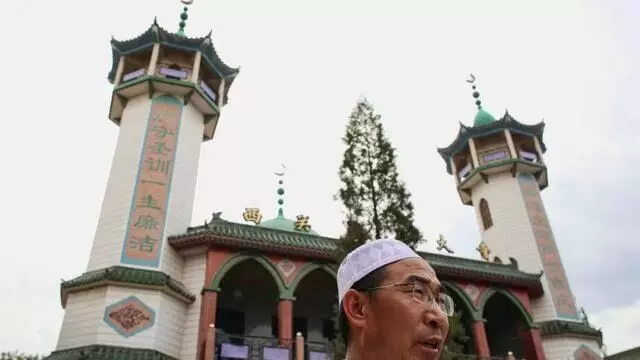TRENDING TAGS :
China's Crackdown on Mosques Intensifies in Ningxia and Gansu Regions
In an extensive campaign against mosques in China, hundreds have been shut down or altered in the northern regions of Ningxia and Gansu, following earlier measures in Xinjiang. According to Human Rights Watch (HRW), the Chinese government is significantly reducing the number of mosques in Ningxia Autonomous Region and Gansu Province.
Approximately 1,300 mosques in Ningxia, accounting for three-quarters of the registered total, have been closed since 2020, excluding those unofficially closed or demolished before 2020. The Communist Party's stringent control, particularly since President Xi Jinping's call for the "sinicization" of religions in 2016, has accelerated the transformation of mosques.
The HRW report reveals a broader expansion of China's campaign beyond Xinjiang, where allegations of human rights abuses against Muslims have persisted for years. Officials have extended mosque closures to Gansu Province, home to a substantial Muslim population.
Changes in Mosque Architecture
Local authorities are also removing distinctive architectural features from mosques to present a more "Chinese" appearance. This shift is part of the Communist Party's efforts to strengthen control over religion and mitigate potential challenges to its rule.
President Xi Jinping's Call for "Sinicization"
President Xi Jinping's 2016 call for the "sinicization" of religions marked the beginning of extensive actions, primarily focused on the western region of Xinjiang, inhabited by over 11 million Uighur and other Muslim minority populations. A UN report last year accused China of committing human rights violations in Xinjiang, including the establishment of networked detention camps, where at least one million Uighurs, Kazakhs, and Kyrgyz are reportedly held.
Suppression of Religious Expression
HRW reports that Chinese authorities are actively suppressing religious expression by rendering mosques inactive, closing them, demolishing them, or altering their structures in areas outside Xinjiang.
Mosque Unification Policy
An imam in Ningxia, during an interview with Radio Free Asia, explained that the mosque unification policy requires merging any mosque located within 2.5 kilometers of another. This policy, according to the imam, not only leads to mosque closures but also discourages participation in religious activities, potentially eroding faith among the younger generation.



